Table of Contents
Causes of International Conflicts:
The causes of International Conflict are numerous and varied. Exhaustive analysis of the causes has been made by various scholars and conferences from time to time. In fact, there is no end to list the causes of international conflicts.
However, for our purposes, we shall divide the causes of international conflicts as follows-
- Psychological Causes.
- Cultural and Ideological Causes.
- Economic Causes.
Psychological Causes:
It is sometimes said that “you can’t change human nature” and that “human nature makes conflict inevitable”. Many psychologists hold the view that man has a fighting instinct. Sigmund Freud is convinced that man has an innate drive towards evil, aggressiveness, destructiveness, and cruelty. According to him, “Men are not gentle, friendly creatures wishing for love who simply defend themselves if they are attacked…A powerful measure of desire for aggression has to be reckoned as part of their instinctual endowment”. As such many psychologists hold the view that as man has got the fighting instinct so conflict is inevitable. The following passage indicates their point of view.
“Man is born a wild animal, and civilized culture can only partially tame him. His instinctive urge to dominate others is coupled with a willingness to yield obedience to the strong when circumstances require it; not merely submission but also allegiance and support; and when those divergent trends reach their peak man may become the most cruel of tyrants or he may become the most long-suffering of beasts of burden…The strife that develops the strong leaders engenders in the others the willingness to be led; it is perceived by them that fighting a common enemy is better than fighting each other”.
After briefly surveying events in the period between the two world wars, Darbin and Bowlby conclude, “No group of animals could be more aggressive than the adult members of the human race”.
Cultural and Ideological Causes:
Other causes of international conflict are cultural and ideological. “Certainly a divergence of views and values among the members of a society constitutes an actual or potential source of conflict and increases the difficulty of settling disputes peacefully”. It is believed by some scholars that cultural differences among nations are supposed to be far greater than are the differences themselves.
There are ideological causes of international conflict. The so-called Hindu-Muslim, Muslim-Christian, Protestant-Catholic conflicts were certainly motivated by ideological causes or we may say by opposing value systems. It is assumed that the basic cause of the cold war which followed World War II was the existence of two incompatible ideologies (communism and democracy) in one world.
Economic Causes:
Sometimes economic factors contribute to the development of friction or the outbreak of conflict among states. The pursuit of economic objectives both abroad and at home contributes to war. People who travel or trade or invest abroad draw their governments after them into colonial ventures. This occurs more often in relations between strong and weak powers than in relations between strong powers themselves. “Governments seeking to promote domestic prosperity sometimes take measures which create international friction and increase the probability of war; they enact trade controls which undermine prosperity abroad, they discriminate against aliens in domestic economic life, and they may use armament programmes to relieve or avert unemployment”.
J. K. Hobson, an Englishman and Lenin are the chief exponents of the view that economic reasons are the crucial factors in the outbreak of conflict. Hobson’s view rests on the idea of over-production, under-consumption, the idea that a capitalist country produces more than it consumes. These results, Hobson argues, a surplus of goods and a surplus of capital, and the presence of the surpluses, in turn, leads to a search for foreign markets in which the surplus goods can be sold and surplus capital invested. Out of such a search, Hobson holds, conflicts arise.
According to Lenin, capitalism in its monopolist form is expansionist because the capitalists come to control surplus capital. Thus they invest the surplus capital in less advanced countries where they can get more profits. Having invested, they want their investment to be more secure. The necessity of exporting capital gives an impetus to the conquest of colonies, for in colonial markets it is easier to eliminate competition, to make sure of orders……by monopolist methods. Thus Lenin holds that conflicts arise out of the imperialist struggle. The inference of Lenin’s argument was that conflicts would be inevitable as long as capitalism endured.
In short, we agree with Prof. Wright that there is no single cause for conflict. Peace is an equilibrium among many forces. Change in any particular force, trend, movement, or policy may at one time make for war, but under other conditions, a similar change makes for peace. A state may at one time promote peace by armament, at another time by disarmament; at one time by insistence on its rights, at another time by a spirit of conciliation.
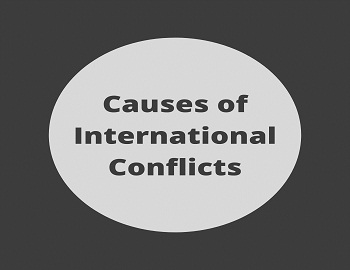
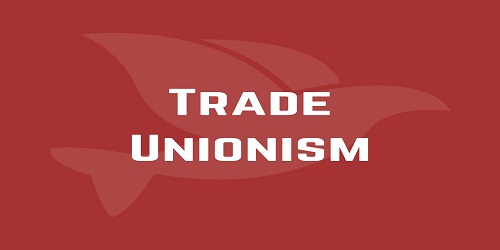
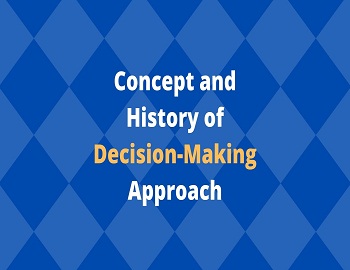
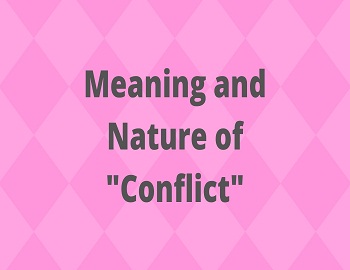


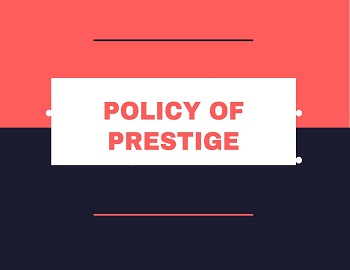
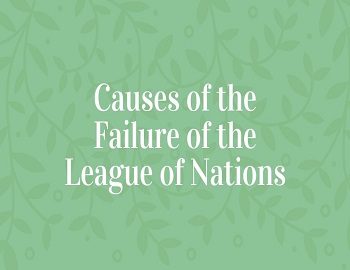

Comments (No)